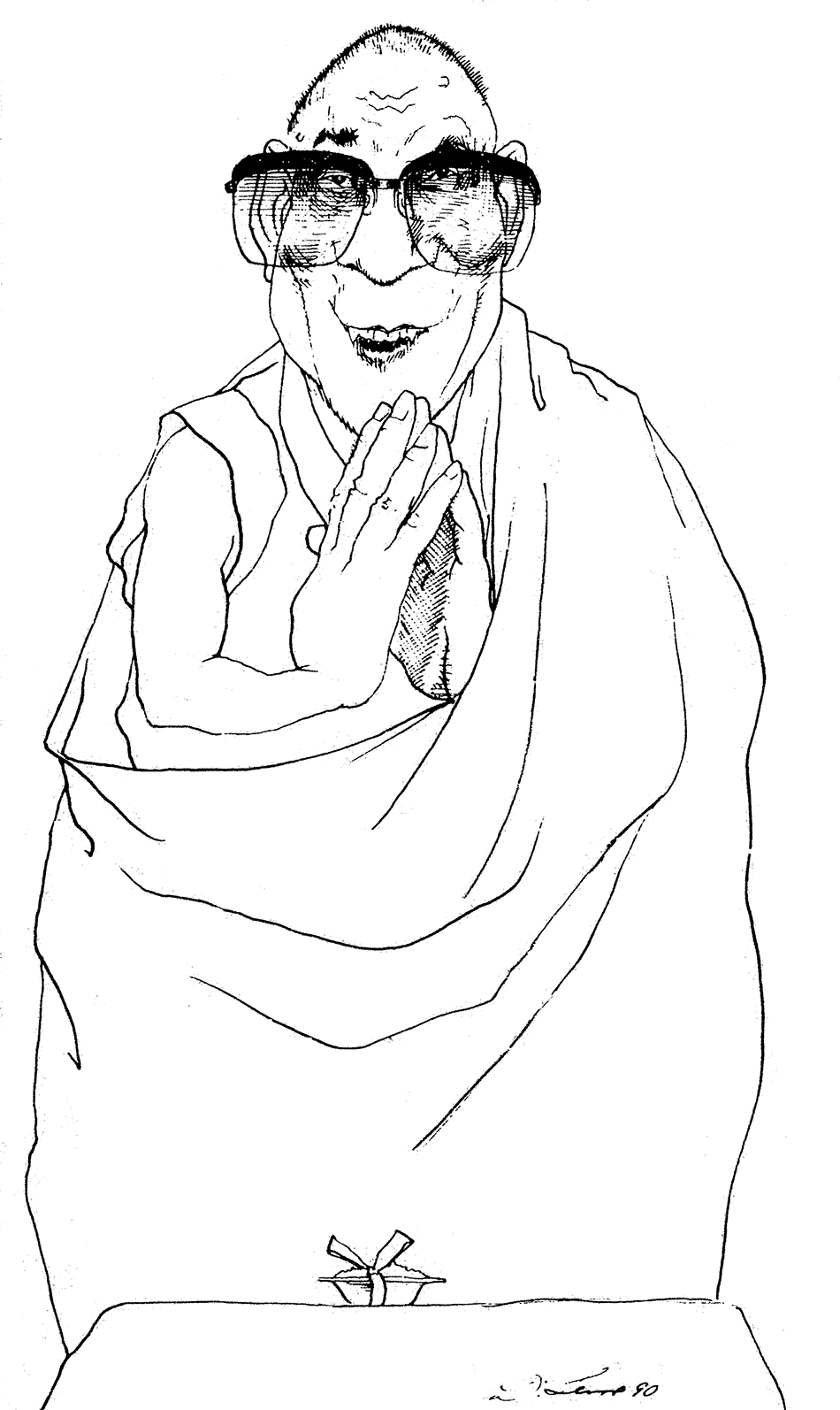China-watchers, friends of Tibet, and admirers of Pope Francis were amazed and disappointed last week when the Pope announced he would not be meeting the Dalai Lama during the Tibetan leader’s visit to Rome. The Dalai Lama was there with other winners of the Nobel Peace Prize, who—ironically—had gathered in Rome after a planned meeting in South Africa did not take place because Pretoria refused to grant the Dalai Lama a visa. In the end, the pope declined to meet with any of the Laureates. In view of Francis’s extraordinary reputation for open-mindedness, how could this be?
The Dalai Lama has a long history of meeting with the head of the Catholic Church. He met with John Paul II on a number of different occasions and with Benedict XVI once, in a private meeting in 2006. But this time, the Vatican explained, there could be no such encounter because of the “delicate situation,” and because, the Dalai Lama was told, “it could cause problems.” It was plain that the statement referred to relations between the Holy See and Beijing. A spokesman for the Dalai Lama said he was “disappointed at not being able to call on His Holiness the Pope but he does not want to cause any inconvenience.”
Over the last few years, a growing number of world leaders, under pressure from China, have spurned or downgraded meetings with the Dalai Lama. In 2010, President Barack Obama received the Dalai Lama in the White House Map Room, making clear that he was meeting him not as a political leader but as a religious one—which the Dalai had already proclaimed was now his only role. That meeting, which ended with the Dalai Lama leaving the White House through a back entrance past a row of garbage cans, nevertheless infuriated the Chinese government, which condemned the White House for interfering in China’s internal affairs. In May 2012, after Prime Minister David Cameron and his deputy Nick Clegg met the Dalai Lama discreetly and briefly in the
crypt of St. Paul’s Cathedral, the Chinese foreign Ministry stated:
We ask the British side to take the Chinese side’s solemn stance seriously, stop indulging and supporting “Tibet independence” anti-China forces, immediately take effective measures to undo the adverse effect, and take concrete action to safeguard the overall development of China-UK relations.
China’s reaction alarmed Cameron, who was planning a visit to Beijing with British business leaders, and the following year the trip took place only after officials in the Cameron government made clear that he had no plans for future meetings with the Dalai Lama.
What happened in Rome is wholly different. Unlike the US, Britain, Norway, and South Africa, among other countries, the Vatican has no economic ties with Beijing, nor does it hold security discussions with the Chinese. It is also usual for the Pope to meet the leaders of other world faiths on purely religious grounds.
What is plain is Francis’s anguish over the fate of the estimated twelve million Chinese who are Catholic and the more than three thousand Catholic priests active in China. About half of China’s Catholics are connected to one of the churches under the Chinese Patriotic Catholic Association (CPCA), which means their bishops are appointed by employees of CPCA, which was created by the Religious Affairs Bureau of the People’s Republic; the other half are unofficial “House Christians,” who recognize the pope as their leader. Along with China’s Protestants, both groups have at best uneasy relations with the Communist leadership. Earlier this year, Catholic and Protestant churches in some regions of China were designated as “illegal structures” and demolished; in other cases in recent months, Christian religious symbols, such as crosses, have sometimes been forcibly removed.
Evidently, the Vatican understood what could happen if the Pope met “the criminal, splittist Dalai,” as he is routinely condemned by Beijing. There is always the possibility of detentions of prominent Catholics and their priests, and more punishments for Tibetan Buddhists, well-tried forms of Communist persecution. There also could be more at stake now that Beijing has signaled that it might consider improving relations with Rome. The signal seems arcane but it was understood in the Vatican. During the Pope’s visit to South Korea, for the first time a plane carrying a pope was permitted to fly through Chinese air space. In response, as he passed over China, the Pope sent a message to President Xi Jinping: “I extend the best wishes to Your Excellency and your fellow citizens, and I invoke the divine blessings of peace and well-being upon the nation.”
Chinese Catholics who managed to tune in to foreign news would have taken heart from that blessing, but the situation remains uncertain. As Ian Johnson recently wrote in The New York Review,
Advertisement
The choice of a Jesuit to be the new pope has awakened some hope for
better relations because of the Jesuits’ long ties with China, but
there is no concrete sign of improvement, nor any realistic chance for
change without some change of policy on Beijing’s part. Given the new
Chinese leadership’s tendencies toward controlling dissent and any
sort of social organization, this seems unlikely. That means that
Catholics in China still face a conundrum of whether to worship in the
official Catholic church, or to worship at unregistered churches that
are loyal to the Vatican but illegal.
After the Pope’s snub of the Dalai Lama—for that is what it was—Chinese leaders must have congratulated themselves on yet another proof of their international power. It was, in fact, an example of what Perry Link terms “the anaconda in the chandelier.” The giant snake lies quietly until disturbed, and then, as it stirs, the chandelier’s slight tinkle is enough to warn those below of the serpent above their heads. But while it is understandable that Pope Francis should fear for the safety of Chinese Catholics, beyond that—unmistakably—is Beijing’s growing capacity for frightening and punishing those who might defy it.



